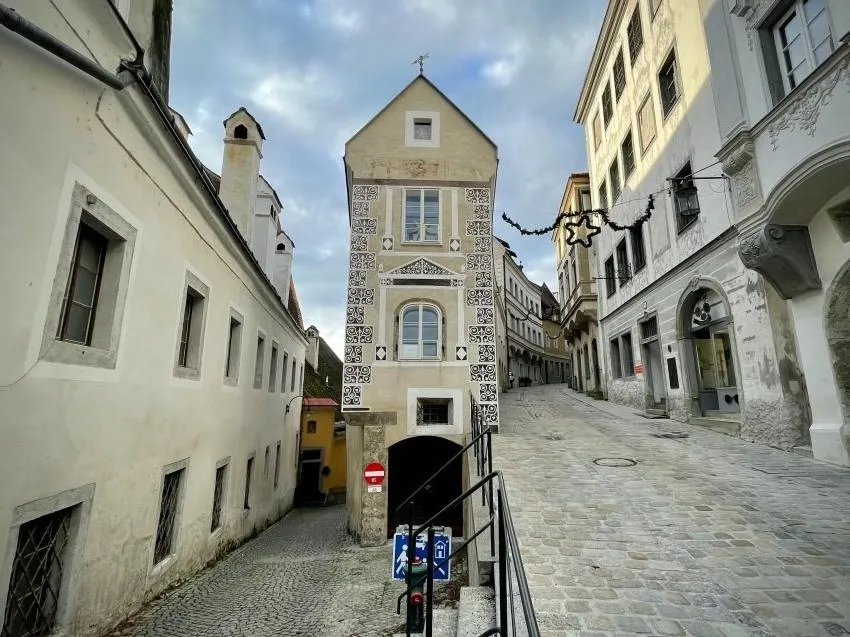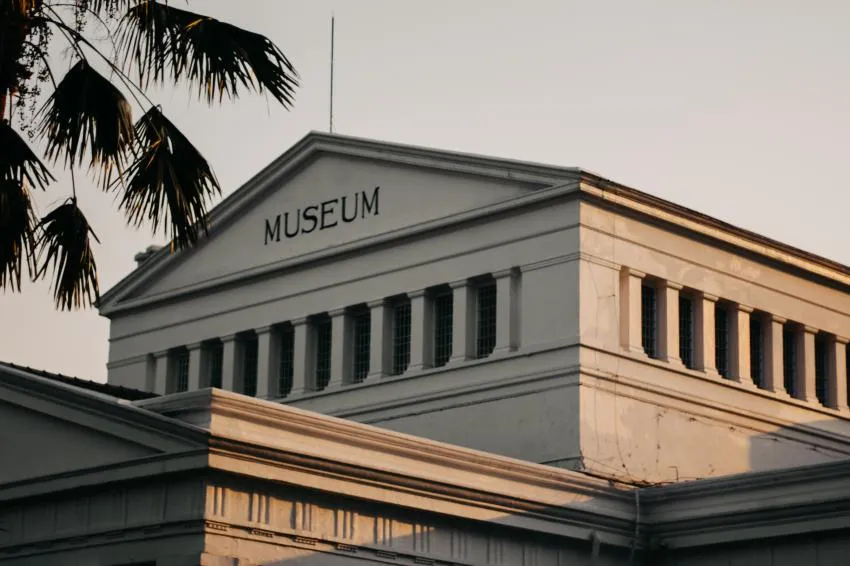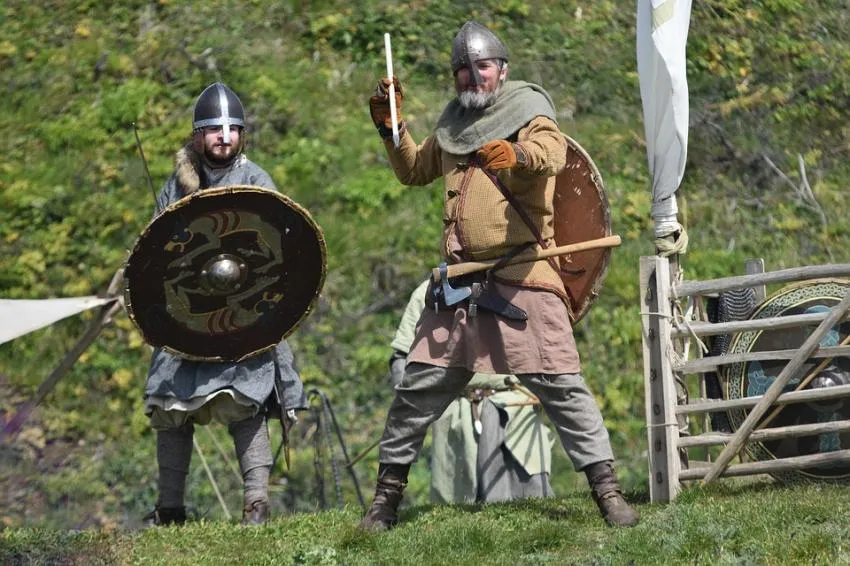10 Jobs That You Can Get With A History Degree, That You Might Not Have Considered
People often think that the only jobs that a History degree will lead you to are a career as a writer or educator. This preconception is, however, a common misconception.
This misconception about job options for history majors is an important myth to dispel for one major reason. That reason being that the fear of having no job opportunity has led many people to follow through with their passion for history.
To correct the view that a History degree leads to limited job options; here are ten jobs available to History majors that not many people are aware of.
1. Historic Preservationist

A notable history-related career is one in historic preservation. Historic preservation is a career involving preserving historic buildings and objects for future generations.
A historic preservationist's work mostly involved making sure various parties follow the 1966 National Historic Preservation Act. This task ranges from determining if a property has any historical value or the potential impact of any proposed changes to a historic property.
I should note that any History major interested in this field should take some architectural courses. That reason being that architectural knowledge is a crucial requirement for this type of career.
2. History Consultant

A job with some overlap with Historic Preservationist is that of a history consultant. This career path involves many possible careers, but all involved using historical expertise to help a company or organization out for a short time.
This work ranges from helping construction companies determine if their project will impact anything historic to aiding a film company to make their film more historically accurate. Overall this career field works best with those who like to see some variety in their career.
3. Museum Outreach

For the more extroverted History majors out there, a job worth looking into is one in Museum Outreach. A museum outreach career involves working on how a Museum presents itself and interacts with the general public.
This type of work ranges from giving a presentation on a new exhibit to working with field trips. However, all of this work involves explaining the importance of items displayed in a museum.
While this type of job does not require a degree in history, a historical education does develop the desirable skills. These skills include explaining the importance of historical items to a general audience.
4. Public Policy Analyst

knowledge for the public good.
Public Policy Analyst is a career quite similar to a history consultant. This similarity is that both jobs involve using your knowledge of history to help others decide future actions. In the case of a public policy analyst, this historical insight can help determine the impact and reception of proposed policies.
While this job is often considered more by a political science major, its requirements overlap with a history major's skillset. This fact comes from this job often involved researching previous public policies to determine the potential impact of similar ones. This type of work is something well within a history major's capability.
5. A Better Historical Interpreter

history through acting.
For History majors with an interest or background in acting, a great career path is being a historical interpreter. A historical interpreter is a person who reenacts a historical character to teach people about the past.
While not requiring a degree in history, a history degree would only improve your chance of being hired in this field. The skills involved with completing a degree in history are also crucial in the field of historical interpreting. The skillset involving taking historical information and interpreting it to be easily understandable by a general audience benefits both an education in history and a career in historical interpreting.
6. Museum Technician

accounted and organized.
A similar job path to a historic preservationist is that of a museum technician. A museum technician is a person in charge of caring for and safeguarding a museum's objects.
Despite the job having the word technician in the title, the job involves more often managing records than working on artifacts. A museum technician records details on museum objects and any documents associated with said objects. All of these skills can be gain through the process of working towards a degree in history.
7 Going to Law School

Despite Law being a career field not often associate with history, a bachelor's degree in history is prevalently taken by students who want to go to law school. The result of both history and legal education requiring a similar skill set.
A share skill that makes a history degree useful for a potential law career involves using various sources from either previous research or court cases to synthesize a compelling argument. In other words, creating a legal brief or historical research paper requires similar abilities.
8. Market Research Analyst

A history major's skill ability to make a convincing argument is useful for various careers. One such job is being a market research analyst. Market research analyst is a career open to both history majors and business majors.
This option is opened to history majors as this job involves taking information and synthesizing a convincing argument. This skill usefulness comes from a market research analyst who needs to know how to take information about various trends and synthesis how the company should respond to them.
9. An Alternate Path to Being a Journalist

While journalism has its dedicated major, a career in journalism is not limited to just those with a degree in Journalism. Many new organizations are willing to hire those with a degree in history. The reasoning being that historical writing and journalism have a lot in common.
Both writing styles involved taking information from various sources and condensing this information into something readable as a single, straight narrative. Both fields also require confirming that utilized information is as accurate and unbias as possible.
10. Human Resources Specialist

and the past.
A surprising career path for a history major to take is one in human resources. A human resources specialist career is open not only to History majors but all humanities majors.
A history major can become an HR specialist thanks to the skills required to be a great HR professional are similar to those developed by education in history. For example, an education in history allows the development of the analytical and research skills required to excel in the HR field.
Conclusion
These ten career fields provide an idea of how a history degree can provide more job options than just education and writing. A history degree is very versatile in future career options ranging from Historic Interpreter to Law School. A history degree's versatility is thanks to developing skills like critical thinking, researching, and writing.
So if you love history and want to pursue it in higher education, do not worry about limiting your future job option. These ten potential career path shows that this concern is just a plain misconception.
Opinions and Perspectives
The analytical skills from studying history are perfect for market trend analysis.
I love how my history degree helps me think critically about current events in journalism.
Working in preservation taught me more about community development than history.
The research skills from studying history are invaluable in financial analysis.
My background in history helps me craft better corporate training programs.
These careers are great but most require significant networking to break into.
I use historical thinking skills every day as a strategic planning consultant.
The article understates how much technical knowledge museum technicians need nowadays.
Working as a historical interpreter requires more performance skills than historical knowledge sometimes.
The legal research parallels are spot on. My history degree made law school much easier.
Working in market research lets me use both analytical and narrative skills from my history studies.
The article should have mentioned how many history majors excel in diplomatic services.
These career paths are great but networking is crucial. My internships were as valuable as my degree.
As a public policy analyst, I appreciate how my history degree taught me to consider long-term consequences.
The article missed mentioning roles in cultural resource management. That's a growing field.
I work in documentary filmmaking. My history degree is essential for research and storytelling.
Being a historical consultant requires more business acumen than the article suggests.
The research skills from my history degree help me excel in competitive intelligence analysis.
Museum outreach is competitive but incredibly rewarding. I love making history accessible to everyone.
I found the transition from history to HR surprisingly smooth. People skills and research combine perfectly.
The article should have mentioned how valuable history degrees are in government intelligence work.
Working in historic preservation isn't just about old buildings, it's about preserving community stories.
The skills from studying history helped me become a better project manager. Planning and analysis are key.
I use historical analysis methods every day in my consulting work. It's surprising how relevant it is.
These careers sound great but many require additional certifications beyond the history degree.
The preservation field is growing fast with all the new heritage tourism initiatives.
My path from history to corporate compliance was natural. It's all about understanding rules and contexts.
I think the article should have emphasized the importance of digital skills alongside historical knowledge.
Working as a museum technician involves way more database management than I expected.
The market research connection is interesting but in my experience employers still prefer business degrees.
Historical research skills are incredibly valuable in the age of fake news and misinformation.
I appreciate that they mentioned law school. My history degree prepared me better than many pre-law programs would have.
My work in public policy definitely benefits from my history background. Understanding past policy impacts is crucial.
The article makes some good points but glosses over the importance of internships in these fields.
I'm surprised they didn't mention roles in genealogy research. That field is growing rapidly.
Anyone successfully transition from history to tech? I'd love to hear about that experience.
The skills from studying history have helped me enormously in content marketing. It's all about research and storytelling.
Museum work isn't as glamorous as the article makes it sound, but it's incredibly rewarding if you're passionate about it.
I use my history degree in real estate development, especially when dealing with heritage properties.
Working as a historical interpreter taught me more about history than my degree did!
The article should have mentioned how many history majors end up in successful sales careers. Storytelling is key in sales.
I actually think the research skills from history studies are even more valuable now in our data-driven world.
Studied history and now work in corporate training. The ability to craft narratives and explain complex topics really transfers well.
My history degree helped me land a job in political campaign management. Another career path worth considering.
The article understates how competitive some of these positions are, especially in museums.
I switched from teaching to museum outreach and it was the best decision ever. Much more dynamic and creative.
Anyone else notice they didn't mention digital preservation? That's becoming a huge field for history graduates.
I work in market research and totally agree about the analytical skills from studying history being valuable.
The skills overlap between history and HR is interesting. I never would have made that connection.
My friend works in historic preservation and says architectural knowledge isn't as crucial as the article suggests. It's more about understanding preservation laws.
The journalism connection makes perfect sense. After all, journalism is just history in real-time.
Working as a historical consultant sounds amazing but how does one actually break into that field?
I love how versatile a history degree can be. These jobs prove it's more about the skills you develop than the specific subject matter.
What about archives management? That's another great career path for history majors that wasn't mentioned.
The public policy analyst role is spot on. I use historical precedents daily in my work to help shape current policies.
I wish I'd seen an article like this when I was choosing my major. I almost didn't pursue history because I was worried about job prospects.
My experience as a museum technician wasn't quite as described. There's actually quite a bit of hands-on work with artifacts.
Anyone else think it's funny how they listed historical interpreter as better than regular interpreter? Made me chuckle.
These are great options but they forgot to mention the tourism industry. I work as a tour guide and my history knowledge is essential.
I'm currently a history consultant for film productions and it's incredible how much my degree helps with accuracy in period pieces.
The market research analyst position is interesting, but I wonder about the salary compared to business majors in the same role.
Actually, I disagree. As a law school graduate, I found my history degree gave me a huge advantage. The research and analytical skills were invaluable.
Honestly, I think the article oversells some of these options. Getting into law school isn't as simple as just having a history degree.
I'm particularly intrigued by the museum outreach position. Anyone here have experience in that field?
The article missed mentioning how well history majors do in corporate strategy roles. I transitioned from studying medieval history to business strategy and the skills transfer surprisingly well.
As someone working in HR with a history degree, I can confirm it's a great fit. My research and analytical skills from studying history help me every day.
I never realized a history degree could lead to so many different career paths. The historic preservationist role sounds fascinating!
